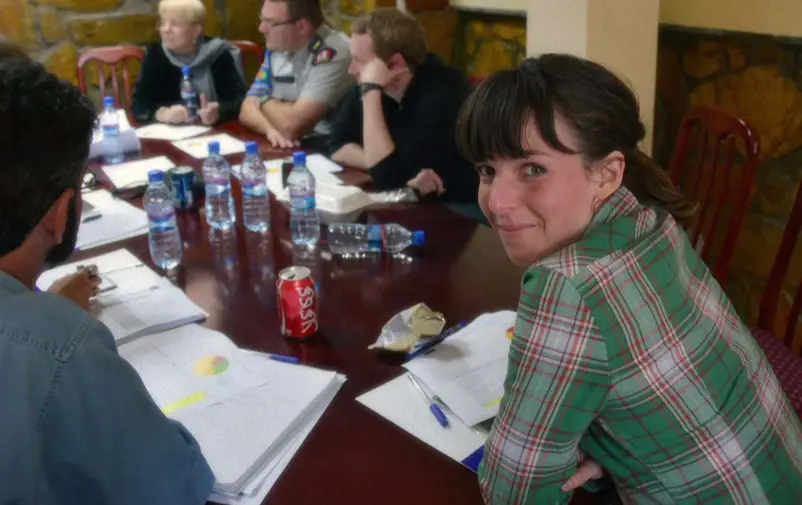
The 1325 Scholarship was established in memory of gender equality expert and peacebuilder Zaida Catalán.
Peace and development work frequently involves working with informal authorities and networks, or civilians living in territories that are controlled or dominated by such actors. These actors include armed non-state actors, traditional authorities, religious groups and clan chiefs, to unrecognized states or states whose claim to self-determination is not widely accepted.
Such de facto authorities are involved in various services, ranging from dispute resolution to education, infrastructure reconstruction, and security provisioning. As a result, it is crucial for FBA and other peacebuilding actors to learn more about how de facto authorities operate and in what ways they can be engaged.
The workshop highlighted multiple perspectives on the role and impact of de facto authorities. The discussions touched on the dual nature of such actors, especially in relation to their transformation from state challengers to entities developing governance systems.
– FBA operates in regions where de facto authorities are influential in a range of ways. Understanding their behaviour , dual nature, and motivations is essential for us as a peacebuilding organisation, says Johanna Malm, Head of Research at FBA.
Another overarching theme was how de facto authorities establish and sustain legitimacy, with researchers emphasizing strategies ranging from the adoption of state-like governance mechanism to the promotion of locally accepted norms.
– One example is the Taliban regime’s taxation policies and education governance, aimed at increasing their control of the local population and gaining ideological legitimacy. For peacebuilding initiatives, promoting and supporting alternative governance systems and inclusive education in Afghanistan is highly important, says Abdalhadi Alija, Senior Researcher at FBA.
Several researchers also highlighted the important role of gender inclusivity in fostering stable and effective governance structures. Abdalhadi Alijla concludes the workshop by acknowledging the importance of research in these focus areas:
– There is no one-size-fits-all agenda when discussing effective governance. Each community and region offer individual challenges, and we need in-depth understanding and local expertise to contribute to more durable peace in these societies.
FBA conducts and promotes scientific research about peace, security and development. We also function as a bridge between research and practice.
Through our International Research Working Groups, we ensure that our work has a direct link to researchers, who in turn can give advice about contextual analysis, relevant scholarly literature, and additional research contacts.
FBA staff has access to databases with up-do-date scientific literature as well as the research we conduct and promote. We educate our staff on how research is best applied in their work, and we make relevant research accessible to practitioners at partner organizations through our tailored FBA Research Briefs.
We also create meeting places, such as research seminars, between researchers and practitioners, both FBA staff and those at partner organizations.
Read more:
MORE FROM HOME
Are you a young peacebuilder at the beginning of your career with a strong commitment to women, peace and security? Do you have experience working in this field in the Democratic Republic of Congo or Afghanistan and want to take your commitment to the next level? Then you have the opportunity to apply for the 1325 scholarship for 2026.
2025-11-06 15:30FBA has both increased and adapted its work in Ukraine in the wake of Russia's invasion.
FBA in UkraineKlara Grenhagen works as a specialist at FBA's Africa unit with a focus on dialogue, reconciliation and peace processes.
More about our expertsFBA is part of Sweden’s development aid within the area of peace and security
Read more about the countries where we work